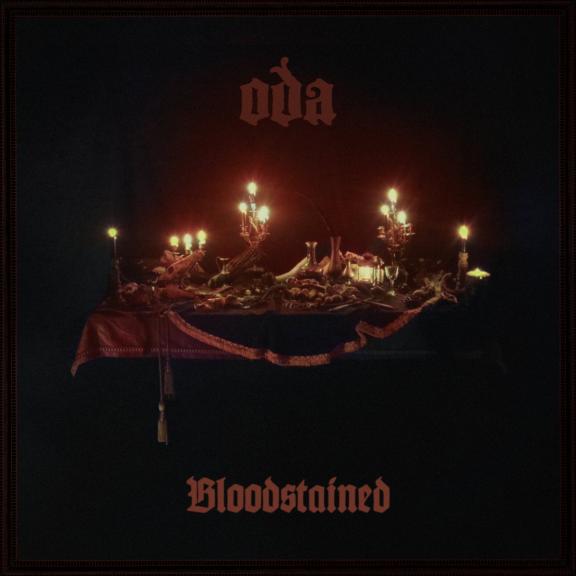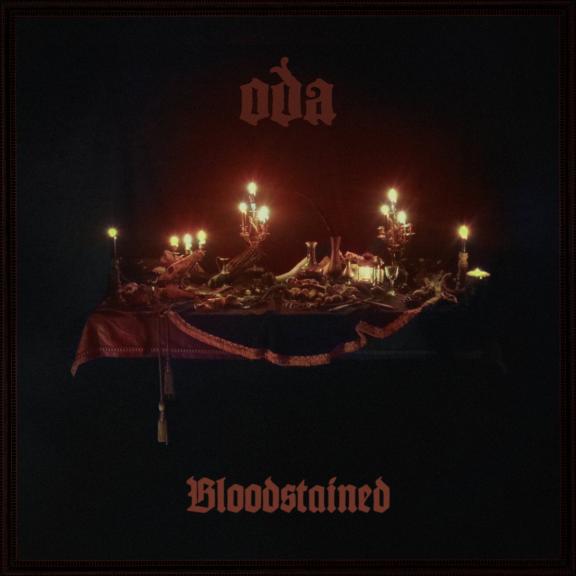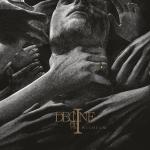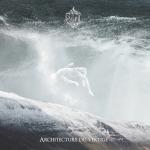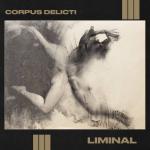Should we rely on a cover to describe what's behind it? Let's put the exercise into practice and take a closer look at this album, linking the visuals to the evocations that the Parisian trio's music induces. Let's avoid the tedious exercise of supposed influences and come straight to Oda's album.
We are invited into a room, around an altar where the trembling flames of candles stand out, in this adjoining space where the walls separate, a burning wind slips in. Encircled in this dark space, we think we've identified a motif that instantly slips away, without our having the slightest hold on these disconcerting visions. A deafening rumble, followed by a deluge of cryptic distortion, icy music expelled from the depths, and this rise illustrated by a signal, a wave that triggers an armada of pale guitars, lead by a rhythmic caesura where a voice echoes its way through a haunted continuum, Children of The Night opens up the ways of mystery.
In six tracks, Oda exert a permanent tension, with a boundless devotion to the doom spirit of the founding fathers, Zombi already imposing itself as a pillar on which gravity liquefies as the riffs wrap themselves around the vocals, everything seems to be concentric, as the sound patterns turn, sprinkled with distant layers, the cavernous vocals manage to bring us into a state of trance. Oda's intention is to capture every resonance like an omen, to capture the majesty of his guitars on record. Inquisitor is chiselled from an obscure, impenetrable material, an audacity that the trio manages to surmount, the columns adorned in crimson, the blood of the night, a few infinitesimal doses of clarity oozing through passages that might leave you cold, but these slowdowns are a breath of fresh air. On the contrary, Thomas Féraud wields iron like metal, a sword that he raises with his two accomplices, Cyril (drummer) and Emmanuel (bass). They don't want to drown in the foggy swamps, but together they cross the icy current that leads to a vortex (Rabid Hole). Psychedelic, hallucinatory atmospheres, the hand of heaven snatches the bogged-down beings, guiding them to the land of fire. We're at a point where Oda open a breach, dissonance and harmony rubbing shoulders under the fires of distortion in an impetuous, visceral flow. The longer you listen, the more you enter unknown dimensions, several states of consciousness that can be altered by the electric lines woven with the skill of three seasoned musicians. Mourning Star is an irreproachable testament to a concept album whose enigmatic theme takes on many symbolic meanings.
The dazzling thing is that Bloodstained is self-produced. It is the equal of great works crafted by legendary studio wizards. Behind the console, Thomas De Fraguier's control room brings a special sound color to Oda's six tracks. Once finished, we replay each track to prolong this strange fever. A tomb-like work, yet very much alive, an incandescent descent into the furnace of a volcano, Oda's album is largely comparable to the very origins of doom. Cryptic, studded with spine-tingling bursts, the six tracks can be listened to without any other option. The mass is said.

